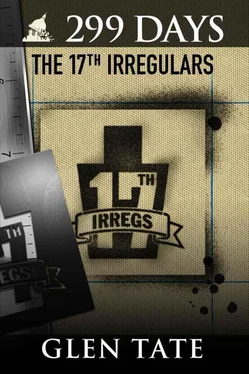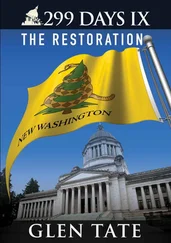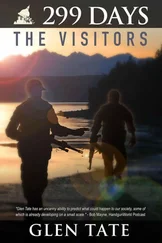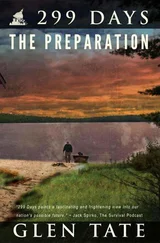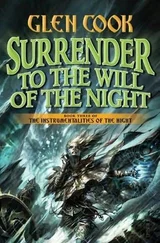The Marion Farm had one little road in and out. There were not many houses on that road. The people in the houses along the road would be key; they had to be trustworthy.
“Would this place work?” Rich asked Ted after he had described it.
“Probably,” Ted said. “We’ll need to see it, of course, but it’s a good start.”
“How are we gonna feed a hundred fighters?” Chip asked.
“This is why it’s nice to be in the Patriot supply system,” Sap said with a smile. “We steal it. Lots of it. We have quite a few ‘requisition teams’ out hitting Loyalist semis. Trust me, you’ll eat well.”
“So this place is near a beach landing?” Ted asked. “That’s how we could get supplies there. And then move them along the quarter-mile, did you say, road to the compound?” Ted was thinking. This might work, depending on what the place looked like. He at least had a solid proposal to take back to headquarters. They had done a tremendous amount of work so far tonight. They got the Pierce Point leaders on board and might have a facility.
Ted looked at his watch. He wanted to start acting on the plans before Rich and Dan had time to rethink their decision to participate.
“Hey,” Ted said, “you guys mind if Sap and I go out and get a quick tour of the Marion place? We have a boat here. I want to see how the beach landing is and how far it is to the place. We won’t be able to see much of the place in the dark, but it’s better than nothing. I mean, we’re already out here. We might as well make the most of it.”
The guys were tired. But they all said, “Sure.”
Dan said, “Rich, you can take them. I’m tired. And I’ve learned what I needed here tonight.” Ted and Sap were hanging on Dan’s every word to make sure he was on board.
Dan looked at Ted and Sap and said, “I’m OK with you guys coming out here with the conditions I set out: no poaching and keep it totally secret.” He said this knowing that there was no way Ted and Sap could abide by these terms, but he wanted them to succeed out there. He was glad they showed up and would make Pierce Point even better than it was.
“How many spots you got in the boat?” Scotty asked. The Team had been virtually silent for about two hours, which was unusual. Everyone on the Team wanted to hang out with the Green Berets.
“Four,” Sap said. “So, with Rich showing us the place, we can have one passenger.”
“Paul,” Grant said. “He’s your most valuable passenger. He knows the tides out here. Knowing whether you can use the beach landing will be critical. Paul will help with that.”
Ted had met Paul now twice when he came ashore and didn’t want even one more person to know about the Marion place than was necessary.
“Could we keep Paul at the landing so he doesn’t see the place?” Ted asked.
“Sure,” Grant said. “It is a good idea, but he’ll figure it out.”
Rich got up to leave with Ted and Sap. “Well, I think we’re done here this evening, gentlemen,” Rich said, like he had been on board with this idea the whole time.
It was past Grant’s bed time. He would have fallen asleep if it wasn’t for the extremely important topics being discussed. He said goodnight to everyone and made sure to thank Ted and Sap for coming out. He left the yellow cabin and headed home, waving at Gideon as he passed his post.
Grant was a liar. He had to tell his family that nothing was going on. He had to lie. Lives literally depended on it. He thought about how Lisa would react when it was time for him to ship out with the guerilla unit and she found out that he had been lying to her for months. His marriage would be over. “Never go off to a war that you don’t have to,” he heard his Grandpa saying. But Grant had to…didn’t he?
He spent the next few minutes in his bedroom with a sleeping Lisa as he tried to get undressed quietly so he wouldn’t wake her. He was also silently debating with himself about whether he really needed to do this Ted project thing. His brain was back in the loop of debating whether he should join up and fight a war.
Grant fell asleep as soon as his head hit the pillow. That was his body’s way of telling him that he had made the right decision.
(July 9)
“Light ‘em up, boys,” Joe Tantori said with a huge grin as he handed cigars to his guys, the fifty plus Marines and the two dozen military contractors and former law enforcement personnel he had working for him. Cigarettes, and especially cigars, were extremely hard to come by these days. The cigars seemed like incredible luxuries. Joe was handing them out and making sure they had lighters. He was in heaven.
Joe acquired the cigars from the bank deal he had just put together. As he was distributing the cigars, he thought back on the deal he had just made an hour before.
Before the deal, Joe had been making money in a pretty much honest—but unconventional—way. During the Revolutionary War period, America had “privateers” who were essentially a private, for-profit navy. Privateers would intercept and capture enemy naval cargo and independent pirates and keep most of what they got. They would give a portion (usually) to the Patriot government or military units.
They were on the Patriots’ side and were taking out Loyalist naval equipment; they just kept some of the money. It was a way for the cash-strapped Patriots to have a naval force they otherwise couldn’t afford, and a way to keep groups of well trained and equipped sailors with something positive to do instead of being pirates or joining the Loyalists. George Washington used privateers masterfully during the Revolutionary War. They were a huge asset. Joe knew they could prove to be so again during the Collapse.
Joe’s Marines, military contractors, and ex-law enforcement officers were a very well-equipped privateer force. He had two fast military interception boats he used for the military training he once did as a contractor. He had plenty of diesel in his underground tank, and he had over seventy men who were very well trained and extremely well-armed. They had to have something to do, and Joe had to feed them. The answer was obvious.
The waters off of Joe’s compound were teeming with targets. The Loyalists were using the waters of Puget Sound to supply their fortress of Seattle. Most of the Loyalist ships were well protected, but many little ships, most of which were not well protected, took the “shortcut” to Seattle which took them right by Joe’s area. In addition to the Loyalist supply vessels, there were plenty of pirates setting out to steal whatever they could.
Pirates? That sounded farfetched to Joe before the Collapse. Men with eye patches who talked funny and had parrots on their shoulders? The fake Hollywood pirates had been replaced with real ones. Modern day pirates were essentially gangs in boats. They stole, killed, and raped all they could. The pirates were vicious, as bad as any of the gangs — biker, Mexican, black, Asian, skinhead — that sprang up everywhere. They were also as brutal as some of the satanic cults that were terrorizing a few parts of the country.
The highways on land were the government’s main security concern when it came to moving goods, but a tremendous amount of goods before the Collapse had been transported by sea, at least in coastal areas like Seattle. The Loyalists didn’t have the resources to protect all the maritime freight, even the fraction of freight moving after the Collapse. The freight was protected by Loyalist naval units and they were very good, but most were essentially mercenaries. Their true loyalty was always in question. The government nearly stopped trying to protect all the maritime freight, concentrating on only the most important shipments that went to key places, like Seattle, and using their Loyalist naval assets to do that. The government didn’t even try to protect against pirates. It was very low on their priority list.
Читать дальше
